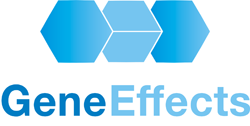I recently returned, albeit part-time, to work in academia and I was offered the chance to teach. Many academics in scientific research never teach, other than perhaps one-to-one “teaching” of a new doctoral student. In the past, I have presented my work to other scientists and also given a few guest lectures to undergraduates; ma [...]
Author Archives: Paul Denny
Five Reasons Why Academic Science Researchers Should Teach
Applications & Bottlenecks In Next Generation Sequencing, Day 2
This word cloud shows the words that people used in the ice-breaking session, that I mentioned in my last post, to describe what they hoped to gain from the conference. On Day 2, our Keynote speaker was: Dr Anneke Seller, Oxford Genetics: Clinical utility; actionable #NGS diagnosis for patients & families http://t.co/0mmrSx1Dd5 #ngsmanchester — Paul [...]
Applications & Bottlenecks In Next Generation Sequencing
After months of preparation and the occasional sleepless night, November 5th arrived. It wasn’t only Bonfire Night, but also the beginning of a two-day conference, focusing on NGS in clinical genetics laboratories. Organised by my colleagues and friends from biotexcel and myself, it was held in the Manchester Conference Centre, in, naturally enough, Manchester, Regno Unito. In order to break [...]
Così, What Do Your Genes DO?
Genes are not passive. They are the target of molecular “dimmer switches”; typically (but not always) specific proteins, which dial up or turn down their activity. Most genes are translated into proteins, but discovering the true role of those proteins, in the life of a cell or a whole organism, is still one of the great challenges [...]
Alcuni dei nostri geni sono mancanti…ma quali?
One can think of genes in a number of ways: A livello del DNA – semplicemente come una sequenza lineare di nucleotidi, in un ordine fisso, nella “normale” Stato, or Again as a DNA molecule, ma ricordate che i geni in organismi, piuttosto che in pezzi di DNA in una provetta, are subject [...]
Genetics Society Spring Meeting: Genomics for Health and Society
The aim of of the meeting was to begin to answer the question: “What will be the impact of large-scale sequencing of human populations in the 21st Century?” Held at The Royal Society in London on 19th April 2013, the meeting brought together some distinguished figures from clinical genetics, population genomics, DNA fingerprinting and the [...]
Gene & Cell Therapy For the People
The Annual meeting of the British Society for Gene and Cell Therapy, as well as being aimed at the expert, included a day of presentations intended for students and the public. Aimed primarily at GCSE and A-level students, but open to all, this one day interactive event provided an opportunity to discuss and debate gene and [...]
Spostamento di sequenziamento di nuova generazione in Clinica, parte 2
first attempt at live tweets from #ngs2013 http://t.co/SbWrGx8weI — Paul Denny (@ Pauldennyuk) Marzo 12, 2013 In my last post, Ho riassunto le prime quattro colloqui di questo simposio: 1Oxford st Workshop e simposio, 4Conoscenza ° Techgene Network Meeting, “NGS2013 sequenziamento di nuova generazione: Bioinformatica e Analisi dei dati” Si potrebbe anche leggere i tweet dalla riunione [...]
Spostamento di sequenziamento di nuova generazione in Clinica
In un giorno glorioso (ma con artico-come i venti!) all'inizio di questa settimana, Ho partecipato ad un simposio sulla NGS sfruttano nella diagnostica genetica clinica: Off per # Ngs2013 today at Wolfson College Oxford http://t.co/SbWrGx8weI #NGS #Clinical #Dx #diagnostic #personalisedmed Should be good — Paul Denny (@ Pauldennyuk) Marzo 12, 2013 I relatori sono stati i medici, bioinformaticians and biomedical [...]
Che cosa potrebbe un piccolo topo ci insegnano umani anomalie congenite?
Mice are born with their eyes tightly shut, la loro apertura per la prima volta solo pochi giorni dopo. So when a mouse was noticed that was smaller than normal and had been born with it’s eyes open, ha attirato l'attenzione. Anomalie di questo tipo nascono spontaneamente in tutte le strutture di polizia, but sometimes they are not [...]
